Ogden Museum of Southern Art
925 Camp St
New Orleans, LA 70130
504.539.9600 | HOURS
925 Camp St
New Orleans, LA 70130
504.539.9600 | HOURS
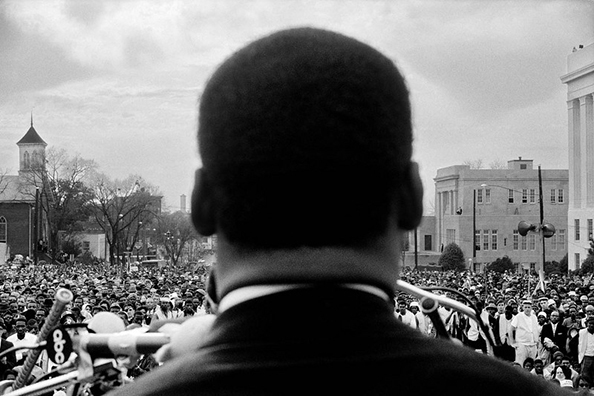
Stephen Somerstein, Dr. Martin Luther King, Jr., seen from behind, addressing crowd of 12,000 civil rights marchers, in front of Alabama State House, 1965 Selma Alabama to Montgomery civil rights march, March 25, 1965, Gelatin silver print, Gift of John Shubin
Art can be a powerful tool in the fight for social justice. It can recall past injustices (and triumphs), yet bring people together to envision a path toward a more equitable and just future. It can cultivate trust, empathy, creativity and diversity, while giving voice to conversations about race, gender, sexual orientation, power, education, immigration, criminal justice and the environment. It can ask difficult questions and inspire change.
This exhibition, created in collaboration with the African American Resource Collection and the City Archives & Special Collections of the New Orleans Public Library, celebrates community members who paved the way for future generations by being the first people of color in their fields (voices of the past), alongside videos of current community activists (voices of today) and posters created by students from New Orleans Charter Science and Mathematics High School illustrating current social justice issues (voices of tomorrow). The exhibition also showcases work from the Permanent Collection of Ogden Museum depicting historic moments and important individuals in the Civil Rights Movement.
The exhibition is supported by a Rebirth PL Grant from the Louisiana Endowment for the Humanities. Funding for Rebirth PL grants has been provided by the National Endowment for the Humanities (NEH) and administered by the Louisiana Endowment for the Humanities (LEH) as part of the Coronavirus Aid, Relief and Economic Security (CARES) Act economic stabilization plan. Additional funding is provided by the Union Pacific Foundation.

Passing the Torch: Southern Art and Social Justice Events
Panel Discussion: Passing the Torch of Social Justice (Mon. Jan. 17 at 3 p.m.)
These photos, selected from the New Orleans Public Library’s City Archives & Special Collections, highlight important New Orleans African American community members who paved the way for future generations by being the first people of color in their fields. Their presence in the community and in city government allowed them to be voices for social justice working towards a more equitable New Orleans.
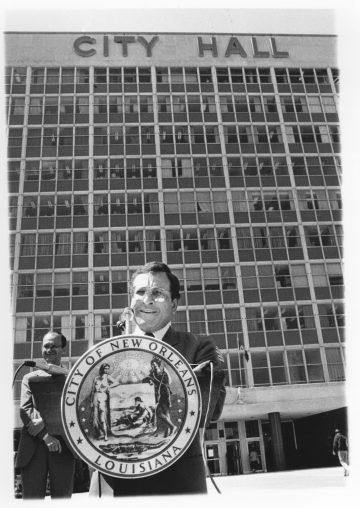
Ernest N. “Dutch” Morial took office as the first African-American mayor of New Orleans on May 2, 1978. He was elected to a second term in 1982, and served until 1986. Among the highlights of the Morial years were the Louisiana World Exposition of 1984 and the development of the Almonaster-Michoud Industrial District in eastern New Orleans. Prior to his term as Mayor he was a practicing attorney (involved in some Civil Rights cases), in the state legislature and the judiciary.
Photo by Harold Baquet, Mayor Ernest N. Morial Photograph Collection, City Archives & Special Collections, New Orleans Public Library
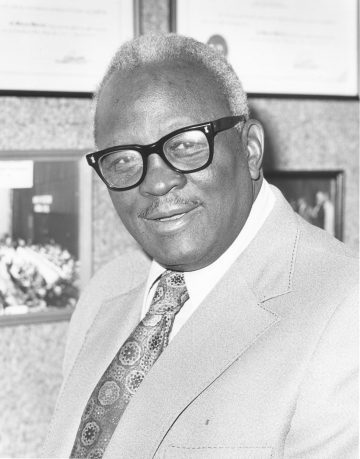
Reverend A.L. Davis, one of the leaders in the Civil Rights movement in New Orleans, was the first African-American to serve on the New Orleans City Council after Oscar Dunn in 1867. He was appointed to the District “B” seat on the City Council in 1975 during a vacancy, and was officially elected to the seat in 1976.
Photographer unknown, Mayor Ernest N. Morial Photograph Collection, City Archives & Special Collections, New Orleans Public Library
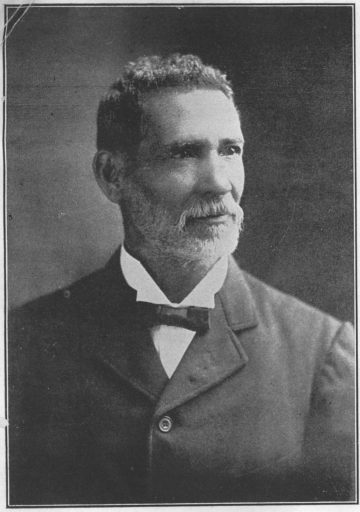
Rodolphe Lucien Desdunes (1849-1928) was a civic leader and scholar. He spent much of his professional life as a clerk with the U.S. Customs Service, but his contribution to history lies in his efforts to promote the achievements of his race and to challenge the legality of Jim Crow laws.
He helped to organize the Comite des Citoyens, which backed Homer Plessy’s unsuccessful attempt to challenge segregation in public transportation. And his book Nos Hommes et Notre Histoire (Our People and Our History), published in 1911, celebrates the work of Louisiana people of color in art, literature, music, invention, philanthropy and other fields of endeavor.
Photographer unknown, Nos Hommes et Notre Histoire, R.L. Desdunes, 1911, City Archives & Special Collections, New Orleans Public Library
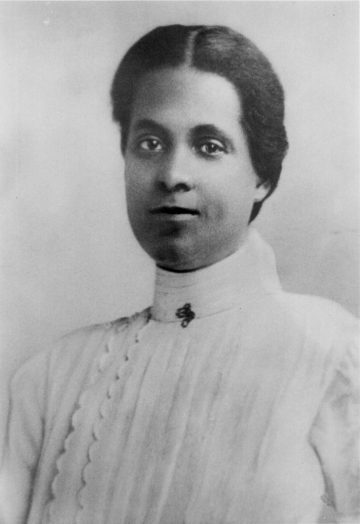
Valena Cecelia MacArthur Jones taught in the “colored” schools of the integrated New Orleans School system from 1897 to 1901. After her death in 1917, a public school was named in her honor, and in 1923, the normal school for African American teachers was renamed the Valena C. Jones Normal School. The New Orleans Public Library used space at the Valena C. Jones School as a temporary library beginning June 12, 1946. This library eventually became the Nora Navra Library, which was the second African American Library in the system and was integrated shortly after its opening.
Photographer unknown, donated by the New Orleans Public Schools, City Archives & Special Collections Photograph Collection, City Archives & Special Collections, New Orleans Public Library
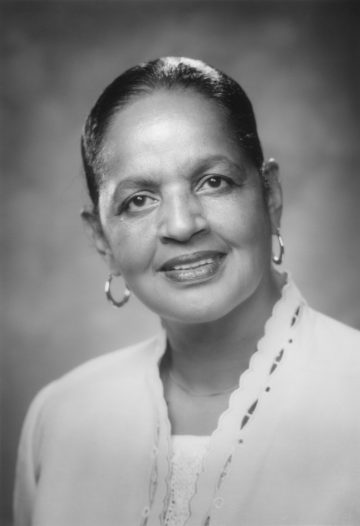
Dorothy Mae Taylor, elected council member-at-large in 1986, was the first woman elected to this position, serving until 1994. Prior to her terms on the Council, she served in the Louisiana House of Representatives (1971-1980). She also served as Administrator of the Central City Neighborhood Health Center and as Secretary of the State Department of Urban and Community Affairs. Taylor is known for her efforts while on the city council to desegregate the Mardi Gras organizations. Her ordinance required krewe captains to sign an affidavit certifying that they are not discriminating on grounds of race, gender, handicap or sexual orientation as a condition for obtaining a parade permit. The Krewes of Comus and Momus stopped parading in New Orleans as a result of the new law; however, after some hesitation, Rex, King of the Carnival and the Krewe of Proteus adopted Taylor’s guidelines.
Photographer unknown, 1991, Haynes S. Ragas Photograph Collection, City Archives & Special Collections, New Orleans Public Library
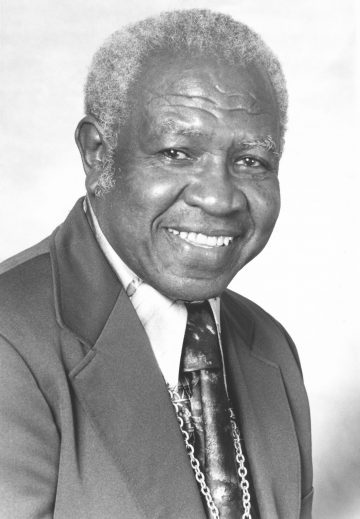
Morris F. X. Jeff, Sr., a division chief in the New Orleans Recreation Department, was a pioneer in establishing programs for African American children when New Orleans was still segregated. Mr. Jeff died in 1993, however Morris F. X. Jeff School stands as a memorial to his long career in city government. Photographer unknown, Mayor Ernest N. Morial Photograph Collection, City Archives & Special Collections, New Orleans Public Library
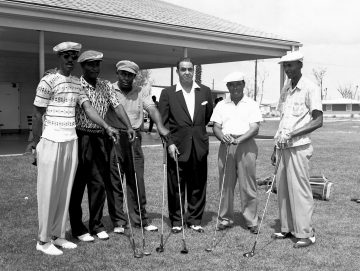
During the segregation era in New Orleans, the Lake Pontchartrain Golf Course in Pontchartrain Park was the only golf course available to African-Americans. This photograph was taken on April 29, 1956 at the “unofficial” opening of the course, which included exhibition matches featuring several four-somes of prominent African-American golfers. From left to right are: Sammy Landry, Charles Harris, Fred Miles, Enuf Mathieu, John Roux (who was the course’s assistant pro) and Clarence Griffin. Photographer unknown, Haynes S. Ragas Photograph Collection, City Archives & Special Collections, New Orleans Public Library
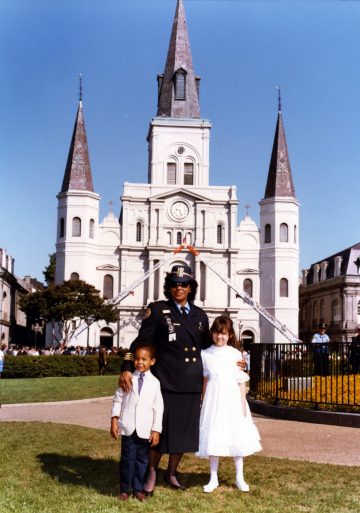
Yvonne Bechet joined the New Orleans Police Department in 1968 and became the first black woman to take a command as well as the first black female Sergeant. She was the Commander of the Community Relations Division and of Career Development in the Police Academy. Bechet rose to the rank of Deputy Superintendent during her 22 years of service.
Photographer unknown, Yvonne Bechet with Grandchildren at the Annual NOPD Inspection on Jackson Square, 1981, Yvonne Bechet Collection, City Archives
& Special Collections, New Orleans Public Library
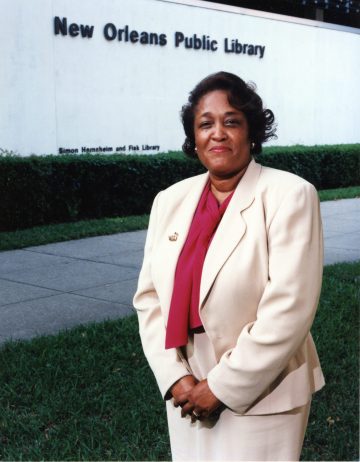
Gertiana Williams was both the first African-American and first female Director of New Orleans Public Library. She served from 1996-2004 and presided over the opening of the computer lab. During her tenure, the library received a $500,000 grant from the Bill & Melinda Gates Foundation.
<i>Photographer unknown, 1996, New Orleans Public Library Photograph Collection, City Archives & Special Collections, New Orleans Public Library</I>
In late 2021, Dr. Zada Johnson of Northeastern Illinois University interviewed current community activists to hear their memories of Dr. Martin Luther King, Jr. as a drum major for justice. These conversations bridge Dr. King’s work with those who continue his legacy today and endeavor to better the world through social justice and community activism.
Students from New Orleans Charter Science and Mathematics High School participated in social justice-themed virtual tours and workshops led by Ogden Museum educators and created posters highlighting the social issues most important to them.